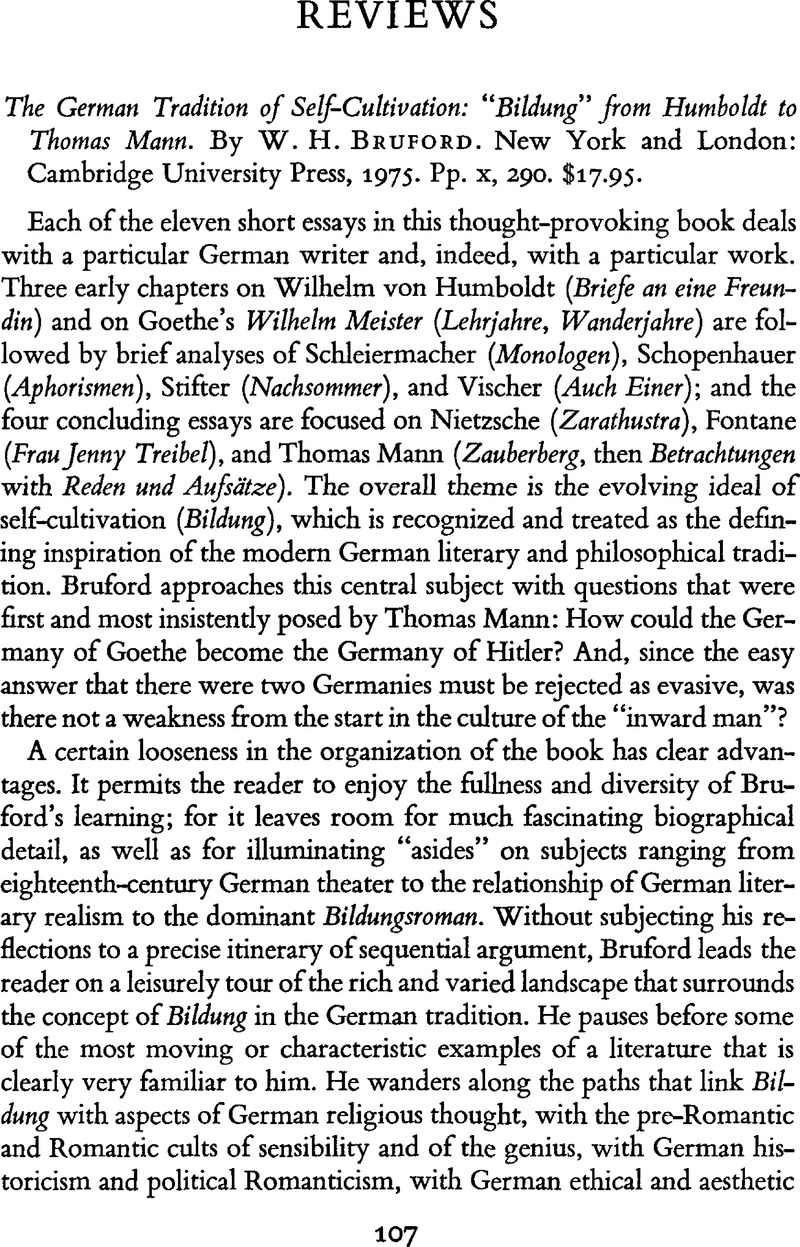No CrossRef data available.
Published online by Cambridge University Press: 16 December 2008

1. Of course there was room for a wide range of specific political orientations within the overall framework of what I have elsewhere called “mandarin” politics; only space limitations force me here to neglect the differences between the libertarian emphasis of Humboldt, of Troeltsch, and of Weber, the orthodox “national” conservatism of Spranger, and the fascist activism of Krieck (not Kriegk). The “unpolitical” position was in some sense vacuous—and so is the bare injunction to “be political.”
2. Bruford's sharpest language about Nietzsche occurs on pp. 168–69, 172–76, 178, 186–88; he expresses his reservations about Förster-Nietzsche as a source but draws on her nonetheless.
3. See esp. p. 170.